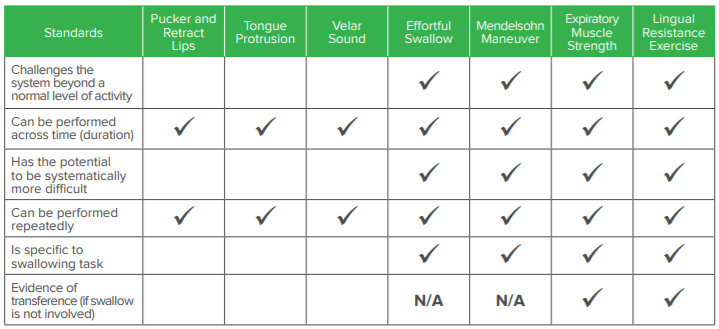Therapist have often relied upon “clinical signs” to assist in determining if a patient is experiencing aspiration. Those signs have included coughing (see "Cough Up The Facts"
previous blog post), throat clearing, wet vocal quality, runny nose, and many others. There is very little empirical evidence to support the correlation of “clinical signs” to an episode of aspiration. A runny nose is often considered to be a salient sign of aspiration; perhaps this is an over generalization.
Hand Me a Tissue: Rhinitis in the Geriatric Population
Topics: Dysphagia
Speech Pathologists who treat dysphagia often rely on a patient’s cough as a marker of aspiration. Other healthcare professionals have been educated that coughing is a sign of swallowing difficulty. How accurate is this statement in the geriatric population and what are other reasons a patient may be exhibiting a cough?
Topics: Dysphagia
As speech language pathologists, we are all familiar with the word “competence.” After a good deal of time invested in educational pursuits followed by a nine-month period of supervision, we are awarded our Certificate of Clinical Competence (CCC) from the American Speech Language and Hearing Association (ASHA). The reality is, when I received my CCC, I could hardly consider myself competent in any area of practice.
Topics: Dysphagia
Champions Corner - Swallowing Center at the University of South Florida (USF)
"Patients enjoy the features and 'seeing' their successes over time. Using the Synchrony sEMG allows us to obtain more reliable data for a scientific approach to therapy.”
Topics: Dysphagia
Patient Information: Male, Age 79
Diagnosis: Wallenberg - Stroke / Dysphagia
History: This gentleman was admitted to a skilled nursing facility for rehabilitation services after hospitalization due to a stroke. A feeding tube was placed to address his dysphagia (difficulty swallowing). Prior to the stroke, he lived in his assisted living apartment and was able to eat a regular diet.
Topics: Dysphagia, Patient Success Story
I am often surprised to learn that terms and concepts I use on a regular basis are different than
I thought. A common term that I have misunderstood for many years is “aspiration pneumonia.”
Recent reading has led me to a new understanding of this term.
Topics: Dysphagia
Exercise in Swallowing Therapy (Part 3 of a 3-Part Series)
This is the third and final installment of our “Exercise in Swallowing Therapy” series. This article will examine some commonly used interventions in light of exercise principles. But first, a quick review. In order to be considered an exercise the activity must meet certain criteria (for more information refer to the two previous articles).
Topics: Dysphagia
Improving Swallow Ability Using Electrical Stimulation, sEMG, and Exercise
Patient Information: Male, Age 86
Diagnosis: Stroke / Oropharyngeal Dysphagia / Dysarthria
History: This gentleman was admitted to a skilled nursing facility for rehabilitation services due to oropharyngeal dysphagia (difficulty swallowing) and difficulty managing saliva after hospitalization due to a stroke. He was only consuming 0-25% of his meals. Prior to his stroke, he lived at home with family, worked two days a week, and ate a regular diet.
Topics: Dysphagia, Patient Success Story
Exercise in Swallowing Therapy (Part 2 of a 3-Part Series)
In the first installment of “Exercise in Swallowing Therapy” the roles of overload and adequate
duration of therapy were discussed. In this second installment, additional exercise principles of intensity progression and repetition are described.
Topics: Dysphagia
The SLP Role in Swallowing Rehabilitation: Looking Beyond the Bolus
My current role as a Dysphagia Clinical Program Consultant (CPC) for Accelerated Care Plus is one that is energizing, enjoyable, and also challenging at times. It is a role I feel incredibly grateful to have at this point in my career. I often have the opportunity to sit down with Speech Language Pathologists who are the only SLP working in the facility, which can feel like being on an island without a colleague with whom to brainstorm on a case. I can’t claim I have all of the answers to dysphagia questions, but I am happy to combine knowledge from articles I have read, experience I have, and evidenced based assessment and treatment techniques I been trained to utilize to help problem solve with treating clinicians to provide the best clinical care for the patients they serve. I am also fortunate to have a team of SLP CPC colleagues to consult with for perspective and insights on effective dysphagia rehabilitation for tough cases.
Topics: Dysphagia

